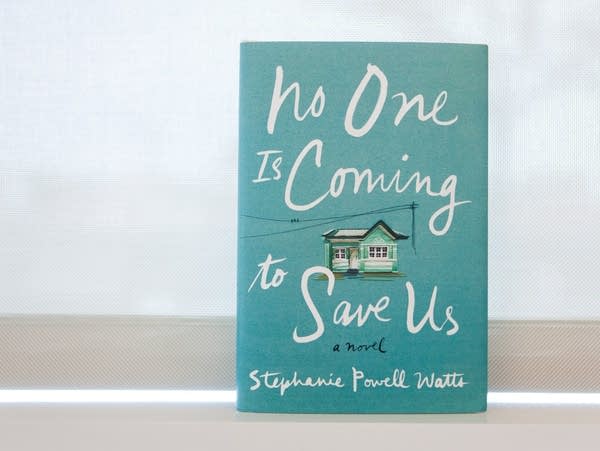Thread Book Hour: Authors take on American empathy and the edge of the world

The Thread book hour is a part of our vast books coverage. Want more? Click here.
Stephanie Powell Watts on "No One is Coming to Save Us"
Novelist Stephanie Powell Watts knows what F. Scott Fitzgerald meant when he wrote about how different the very rich are.
Create a More Connected Minnesota
MPR News is your trusted resource for the news you need. With your support, MPR News brings accessible, courageous journalism and authentic conversation to everyone - free of paywalls and barriers. Your gift makes a difference.
Her debut book "No One is Coming to Save Us" — which is a riff on Fitzgerald's classic, "The Great Gatsby" — tells the story of a boy who is tasked with building a house on a North Carolina mountain, where the wealthiest families in his hometown live.
"We see this incredible income inequality, this income gap between the people who have and the people who don't," Watts said. While this was also true in Fitzgerald's time, most people do not resent those with a lot of wealth today.
Instead, marginalized groups try not to focus on the systems and circumstances holding them back, "at least for the people I know," said Watts. "It is a kind of resiliency ... but it's also a very pragmatic way to have a life for yourself and your children."
It's a self-awareness that should go both ways, Watts said. People who have more like to give advice to those who have less, and while they might make some good points, they often don't take into consideration the luck and privileges they've experienced on their own journeys.
"Change is really hard," Watts said. "We also forget often that there's so many structures that are inhibiting change."
That is why empathy is so important for Americans, Watts said. "Rather than thinking 'that could never be me,' we should be thinking 'if it were me, how then could I come out of it?'"
"I want to be open, and I want to understand people. But you know what, I feel like sometimes we have one or two ideas about someone and then we close down on them," she said. "It's a terrible recipe for being a community."
Ashley Shelby on "South Pole Station"
Author Ashley Shelby set her novel, "South Pole Station," in one of the most inhospitable places in the world: Antarctica.
She based the book in part on the experiences of her younger sister, Lacey Shelby, who is one of the few women to have spent the winter at Amundsen Scott South Pole Station. Lacey shared one of the station's adages with her sister: "What happens on the ice stays on the ice."
The setting intrigued Shelby, and she spent five years researching and writing "South Pole Station." It mixes a heavy dose of Shelby's own imagination with her deep investigation of what life in the isolated location is really like.
"Why? Why would you choose to do this?" Shelby asked, of people who spend a year or more on the bottom of the world. "And what's going on in your life that you can take six months, sometimes 12 months, and become essentially unreachable?"
The dynamic of a bunch of people stuck together, with nowhere else to go, also makes for great fiction.
"You throw a bunch of people into an extreme environment, what can't happen?"
To listen to the interviews, use the audio players above.